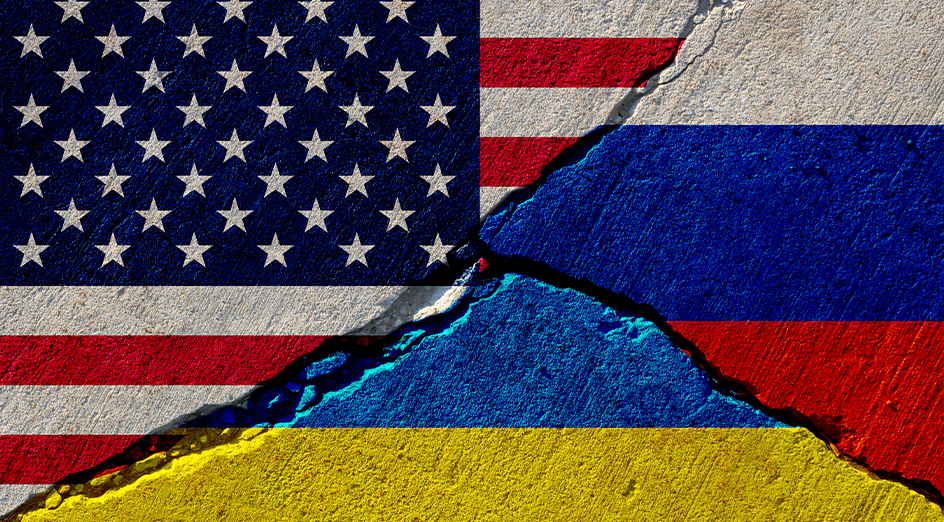This article by Amin Saikal, Adjunct Professor of Social Sciences at the University of Western Australia, was originally published in The Strategist on March 24th.
The view widely held in the West is that Russia is applying the same scorched-earth approach to Ukraine as it has in Syria and Chechnya, destroying cities, killing, terrorizing and displacing populations and fomenting a massive humanitarian crisis. This is undeniable, but it is also important to recognize that President Vladimir Putin has adroitly observed and exploited past misdeeds and the United States’ current limitations on this approach.
The fiascos in Vietnam, Iraq and Afghanistan are a powerful reminder of the moral wrongs and human tragedies for which the US and some of its allies were responsible in those countries.
The massive and at times indiscriminate bombing of Vietnam and the Ho Chi Minh Trail – a military supply route that runs from North Vietnam to South Vietnam via Laos and Cambodia – caused an untold amount of casualties and property. The scale of American air raids from 1965 to 1979 was twice the number of bombs dropped on Europe and Asia during World War II. Agent Orange’s deployment poisoned so many people and fields that the Vietnamese still haven’t fully recovered. The substance also has long-term effects on American and Australian troops. Many international human rights organizations have condemned the US for violating human rights, humanitarian law and international law.
The US constantly justified its actions with democracy versus communism and good versus evil. It fabricated disinformation, as revealed in the Pentagon Papers (officially the report of the Department of Defense Office of the Vietnam Task Force). I remember having a long conversation with former US Secretary of Defense Robert McNamara in Helsinki in 1999, during which he effusively expressed regret for his role in the Vietnam War. When asked why he didn’t do anything about it at the time, he replied that in war you only want to win.
Russia’s brutal crackdown and operations in Ukraine mirror some of the US in Vietnam. If Putin regrets his Ukraine aggression, stalled by the heroic Ukrainian resistance with Western backing, he is now in the thick of it and doesn’t know where to stop.
In many ways, the same is true of the US invasion of Iraq in 2003. While Saddam Hussein’s dictatorship deserved to be overthrown, the way the George W. Bush administration attempted to do so was for Iraq’s very burdensome to the people and Iraqi society. The US began its operations with a “shock and awe” that lit up the skies of Baghdad as multiple fireballs struck the city. Most Iraqis were delighted to see the end of Saddam’s regime, but in the process of getting rid of it, the US destroyed the Iraqi state at enormous human and material cost to Iraq.
Over the next eight years, hundreds and thousands of Iraqis were killed and injured, and many cities were severely damaged as the US dealt with a bloody insurgency for which it had no viable strategy. The humiliation and torture of Iraqi detainees in Abu Ghraib prison has belittled the moral standing of the US, and its failure to bring stability, security and democracy to Iraq has tarnished its status as a world power.
Washington started from the false premise that Saddam had weapons of mass destruction and ties to al-Qaeda. America was backed by only two allies, Britain and Australia, in a so-called “coalition of the willing” without United Nations legitimacy or support under international law. Putin has similarly imposed his war of choice on Ukraine.
The US-led Afghanistan adventure offers a similar narrative. In this case, the US, backed by NATO and non-NATO allies and securing UN support, began its intervention as a matter of necessity in retaliation for Al Qaeda’s September 11, 2001 terrorist attacks on America also intended to transform Afghanistan into a viable state that would never become a hub of international terrorism. But in the face of a determined armed opposition from one-time terrorist enemy — the Pakistan-backed and al-Qaeda-allied Taliban — US and some allied forces, including those of the Afghan government, engaged in many unsavory and devastating acts. Their culturally insensitive night operations, house searches, brutal interrogation methods, and failure to attack Taliban safe havens in Pakistan instead of bombing Afghan villages and towns could only play into the hands of the opposition.
Thousands of Afghan people lost their lives, homes and businesses were destroyed and customary honors violated. These results were widely documented and denounced by human rights organizations. At least in the case of Australia, the actions of its soldiers are being investigated. After two decades of engagement, all the US and its allies could do was abandon Afghanistan and return the country to the Taliban’s brutal theocratic rule and face the worst crisis of its existence in generations.
Aware of US activities, Putin believed he could do whatever he wanted with Ukraine. Putin was also comforted by the fact that the US and its NATO allies have repeatedly made it clear that they will not directly oppose the Russian invasion. The most tragic aspect of the American wars, however, was that the US did not walk away feeling victorious. Putin should take this into account – and the Soviet defeat in Afghanistan.
Amin Saikal is the author of Modern Afghanistan: A Story of Struggle and Survival and co-editor of Russia In Search of Its Future.
This article was republished by The Strategist under a Creative Commons license. Read the original article.

